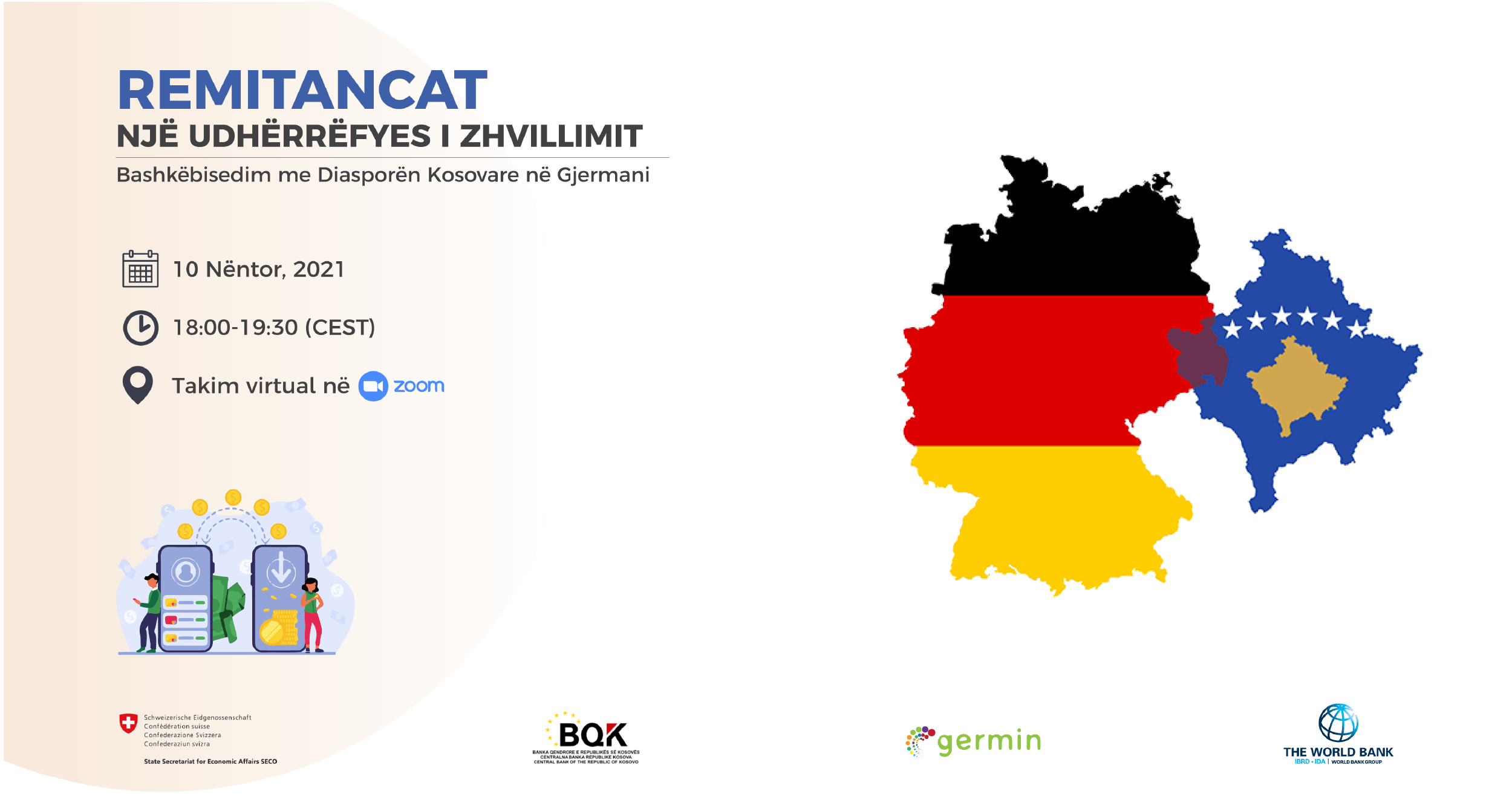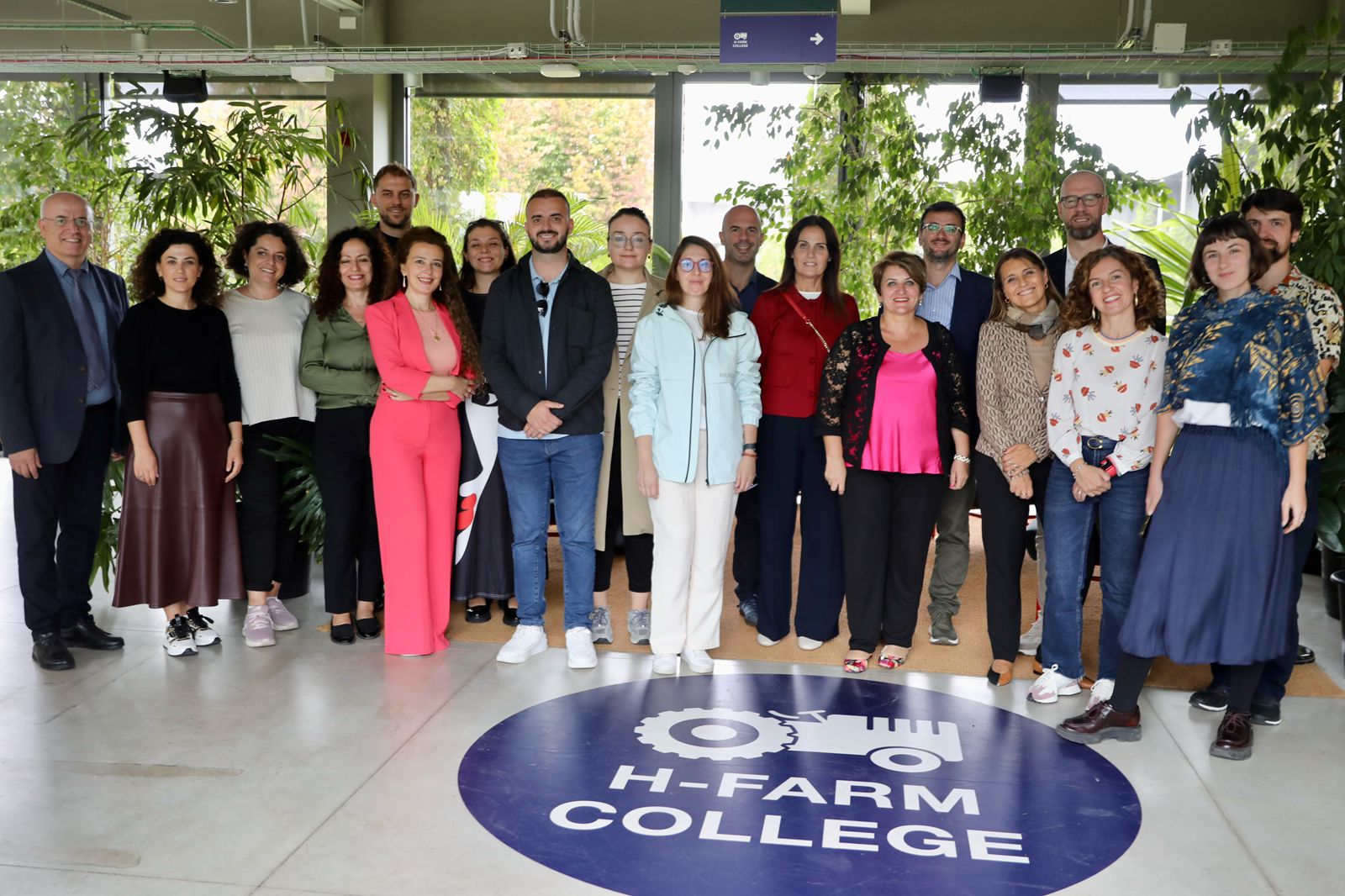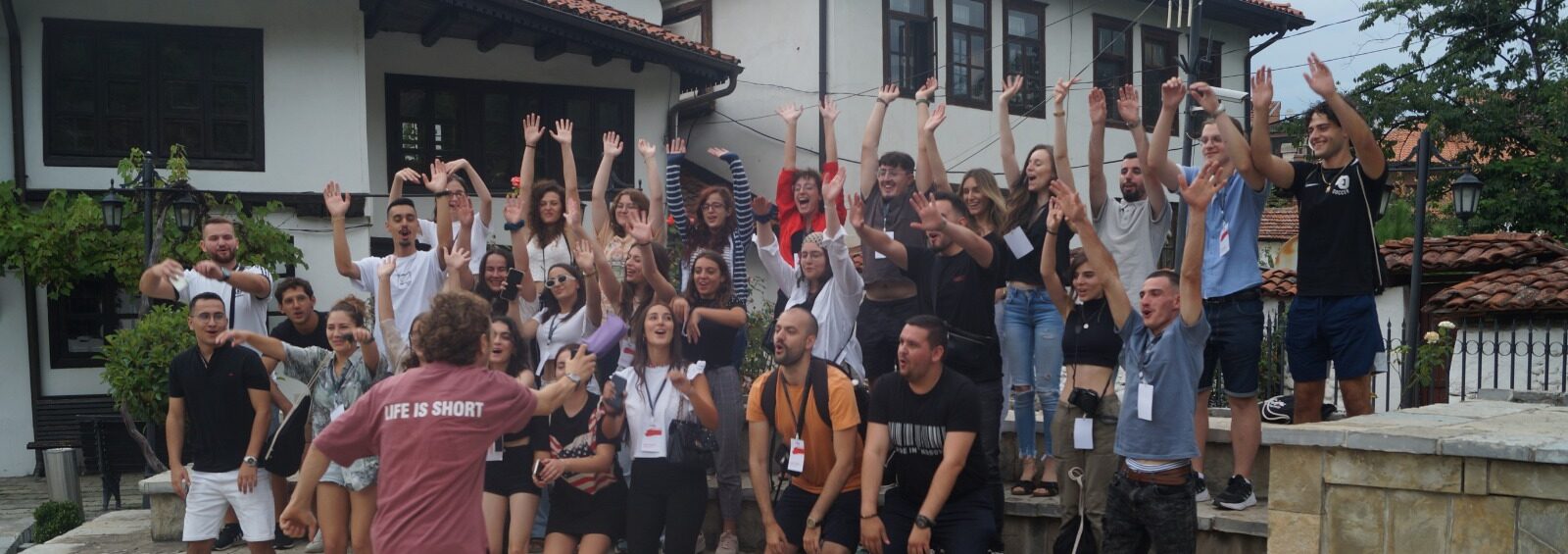Discussion with the Kosovar diaspora in Germany

On Wednesday, November 10, 2021, GERMIN organized the first lecture with the Kosovar diaspora from Germany within the Greenback 2.0 project. This meeting is part of a series of activities within the Greenback 2.0 project, by the World Bank in cooperation with the Central Bank of the Republic of Kosovo (CBK) and funded by the Swiss Secretariat for Economic Affairs (SECO).
The lecture focused on remittances and served as a kind of development guide in order to see the role and importance of the Kosovar Diaspora in Germany towards their home country.
The lecture started with Mr. Lirim Krasniqi with a brief introduction to the topic, project and panelists, as well as a brief explanation of remittances.
Finance expert, Mr. Rafet Bojaj, spoke about the way of using these assets and their importance in the economy of Kosovo. Mr. Bojaj also explained how technology can reduce the cost of sending remittances. He mentioned Open Banking, which basically helps you move, manage and earn more of your money. Another option he introduced was Blockchain, which could be used to create a permanent, public, transparent system for compiling sales data, tracking digital usage, and digital payments.
In support of Rafet, the expert and political scientist from Germany, Mr. Deli Balidemaj agreed on some categorizations made by Mr. Bojaj also pointed out that remittances are the largest economic income for Kosovo, but these revenues are almost impoverished given that Kosovo relies heavily on imports. Mr. Balidemaj suggested the creation of a general strategy regarding the economic situation in Kosovo and the way it is being handled. For this strategy to work, there must be some kind of guarantee from the Central Bank of Kosovo.
Mr. Bejtush Kicmari, member and finance expert at the Central Bank of Kosovo, shared many statistics on how diaspora money spent in Kosovo annually is greater than the amount of Kosovo’s annual budget. He also spoke about economic trends in Kosovo.
This meeting prompted a discussion and questions from the audience, on which occasion it showed a lot of interest in the topic, and where many suggestions were recommended for solving possible problems related to the creation of policies for channeling remittances that enable development.




